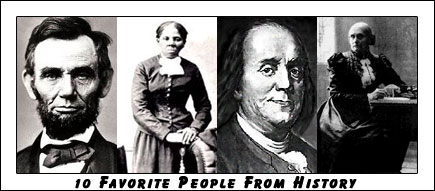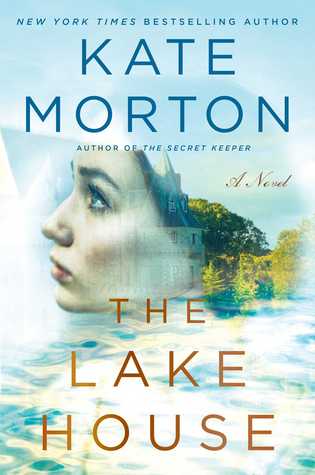
These are not in any order other than alphabetical by last name. I picked these, becuase they were people that stood out in my memory either as the ones I enjoyed learning about or people that I feel made a great contribution to the world.
Susan B. Anthony
Susan Brownell Anthony (1820-1906) campaigned against slavery in the USA and, after the Civil War, worked for women’s rights, including the right to vote. Women were given the right to vote (the 19th Amendment to the Constitution) in 1920, fourteen years after her death.
Christopher Columbus
Christopher Columbus (1451-1506) was an Italian explorer who sailed across the Atlantic Ocean in 1492, hoping to find a route to India (in order to trade for spices). He made a total of four trips to the Caribbean and South America during the years 1492-1504, sailing for King Ferdinand II and Queen Isabella of Spain. On his first trip, Columbus led an expedition with three ships, the Niña, the Pinta, and the Santa Maria.
Thomas Alva Edison
Thomas Alva Edison (1847-1931) was an American inventor (also known as the Wizard of Menlo Park) whose many inventions revolutionized the world. His work includes improving the incandescent electric light bulb and inventing the phonograph, the phonograph record, the carbon telephone transmitter, and the motion-picture projector.
Henry Ford
Henry Ford (1863-1947) was an American engineer and industrialist who used the first conveyor belt-based assembly-lines in his car factory, revolutionizing factory production. Ford manufactured affordable cars and paid high wages to his factory workers, allowing workers to buy the cars they made. After early work as a machinist, Ford built a gasoline engine in 1893. In 1896, Ford built a “horseless carriage,” which he called the “Quadricycle,” which means “four wheels.” Ford introduced the Model T in October 1908; it was a great success (every Model T was painted black).
Benjamin Franklin
Benjamin Franklin (January 17, 1706-April 17, 1790) was an American statesman, writer, printer, and inventor. Franklin experimented extensively with electricity. In 1752, his experiments with a kite in a thunderstorm (never do this, many people have died trying it!) led to the development of the lightning rod. Franklin started the first circulating library in the colonies in 1731. He also invented bifocal glasses and the Franklin stove. The idea of daylight savings time was first proposed by Benjamin Franklin in 1784.
Abraham Lincoln
Abraham Lincoln was the 16th president of the United States of America (from 1861-1865) and one of the greatest presidents. Lincoln helped abolish slavery in the United States.
Louis Pasteur
Louis Pasteur was born on December 27, 1822 in Dole, in the region of Jura, France. His discovery that most infectious diseases are caused by germs, known as the “germ theory of disease”, is one of the most important in medical history. His work became the foundation for the science of microbiology, and a cornerstone of modern medicine. Pasteur’s phenomenal contributions to microbiology and medicine can be summarized as follows. First, he championed changes in hospital practices to minimize the spread of disease by microbes. Second, he discovered that weakened forms of a microbe could be used as an immunization against more virulent forms of the microbe. Third, Pasteur found that rabies was transmitted by agents so small they could not be seen under a microscope, thus revealing the world of viruses. As a result he developed techniques to vaccinate dogs against rabies, and to treat humans bitten by rabid dogs. And fourth, Pasteur developed “pasteurization”, a process by which harmful microbes in perishable food products are destroyed using heat, without destroying the food.
Sir Walter Raleigh
Sir Walter Raleigh (1554-1618) was a British explorer, poet, historian, and soldier. Raleigh led expeditions to both North America and South America; he was trying to found new settlements, find gold, and increase trade with the New World. In 1585, Raleigh sent colonists to the east coast of North America; Raleigh later named that area Virginia, in honour of Elizabeth, the Virgin Queen. He is often credited with bringing tobacco and potatoes from the New World to Britain, but they were already known there. Raleigh was later executed by King James I for treason.
Captain John Smith
John Smith (January 9, 1580 - June, 1631) was an English adventurer and soldier, and one of the founders and leaders of the Jamestown, Virginia, settlement. Smith also led expeditions exploring Chesapeake Bay and the New England coast.
Smith was one of 105 settlers who sailed from England on December 19, 1606, and landed in Virginia on April 26, 1607. When they reached North America, the group opened sealed instructions and found that Smith was chosen as one of the seven leaders of the new colony.
Harriet Tubman
Harriet Tubman (1820 - 1913) escaped slavery in Maryland in 1849 and traveled north. Mrs. Tubman devoted her life to fighting slavery and championing the rights of women. She then helped hundreds of other slaves flee to the north to freedom via the Underground Railroad. Mrs. Tubman helped John Brown recruit soldiers for his raid on Harpers Ferry (1859). She spied for the Union during the US Civil War (in South Carolina).

 how to make box valences, need these for living room
how to make box valences, need these for living room you can make these crescent roll dough, cream cheese bars with pie filling or just simply the cream cheese mixture with some choc chips!
you can make these crescent roll dough, cream cheese bars with pie filling or just simply the cream cheese mixture with some choc chips! Get rid of ants almost overnight with this solution!! Pinning just in case.
Get rid of ants almost overnight with this solution!! Pinning just in case.
Comment • • FILED IN ten on tuesday